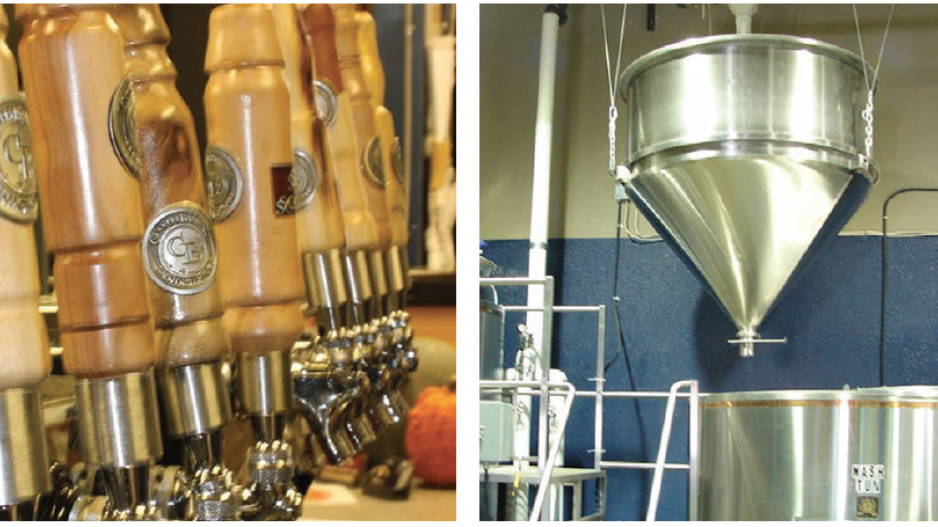Raise a glass
The growth of microbreweries attracted some attention earlier this year when Colliers International issued a report examining their impact on Metro Vancouver real estate.
Vancouver’s Mount Pleasant neighbourhood was flagged as an example of what happens when positive circumstances converge, including older industrial real estate, responsive zoning and a mix of tech companies and popular residential neighbourhoods.
But the neighbourhood isn’t the only one in the province with craft breweries, which have a long and dignified history in the province (to wit, the roll call offered in folk music troupe Spirit of the West’s 1986 paean to North Shore brew pubs, “The Crawl”).
Over in Penticton, Cannery Brewing Co. is building a new 12,000-square-foot location downtown on the site of a former service station. The move shifts the brewery from a light industrial precinct to a central location near Okanagan Lake, the wineries of Naramata and the site of two popular farmers markets.
“You kind of need to be somewhere where people are going to be as opposed to having people drive 10 extra miles to fill their growler,” said Patt Dyck, co-owner of Cannery. “It’s kind of like getting a quart of milk on your way home. It wants to be close by, and you want to be the neighbourhood brewery.”
The city, for its part, was amenable to the location because Cannery will draw people downtown.
“They certainly see our business going where it’s going as a real anchor,” Dyck said. “I don’t know that we could have a better location.”
The new brewery is being built by Penticton-based Greyback Construction Ltd., which also built the new Fort Berens Estate Winery in Lillooet and is developing the 600-unit Skaha Hills residential community in Penticton in partnership with the Penticton Indian Band Development Corp.
Cannery’s move mirrors that of Sandhill Wines, which opened on Richter Street in downtown Kelowna this past summer adjacent to Tree Brewing Co.
And, just around the corner from Sandhill on Clement Avenue, Starkhund Brewing Co. plans a 58,000-square-foot facility in the first phase of the former Okanagan Tree Fruit Co-operative site’s redevelopment.
Rental role
Dallas-based Associa recently added Kelowna Condominium Services Ltd. to its holdings for an undisclosed sum.
Associa, North America’s largest property management firm, entered Canada in 2011 with an acquisition in Calgary. Two more deals followed, including the purchase of Vancouver’s Baywest Management Corp. in 2012.
The latest deal, its fourth acquisition in Canada, takes it outside the Lower Mainland and gives it a foothold in the Okanagan with its sizable number of condos and vacation properties.
Shopping maul
Colliers International reports that West Coast retail sales are looking robust as 2014 comes to a close and the season for shopping comes upon us.
But if local malls are feeling a bit cramped, and you, O shopkeeper, are feeling mauled, there’s a reason.
Metro Vancouver population growth is outstripping growth in shopping venues.
Since 2010, the per-person tally of retail space has dropped from 10.6 square feet to 10.2 square feet this year; among power centres, which have been hit hardest by the rise of online retailing, the ratio has inched down from 3.2 square feet per person to 3.1 square feet in 2014.
The numbers don’t include street-front retail space, but even so they indicate the region is consistently under-retailed, a situation that isn’t improving.
On the other hand, the phenomenon of diminishing retail space per capita over the period is shared by Calgary, Edmonton and Toronto, as well as Halifax, the second least retailed city in Canada after Vancouver.
David Bell, a senior retail consultant with Colliers, said a key factor in Metro Vancouver’s lack of retail space is a more cautious approach by Vancouver developers when it comes to adding to the inventory. •




